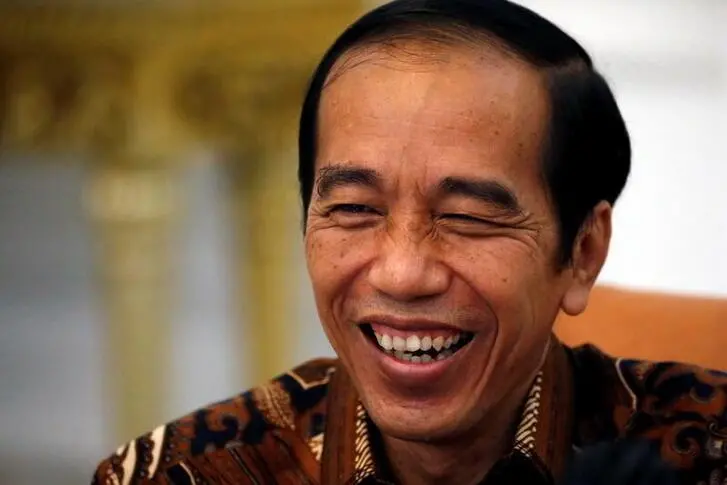PHOTO
Indonesia's President Joko Widodo on Tuesday proposed a slightly smaller budget for 2023 than for this year to parliament, pledging to consolidate fiscal positions after racking up large deficits during the pandemic.
Jokowi, as the president is popularly known, proposed a budget of 3,041.7 trillion rupiah ($205.94 billion) for next year, with a deficit of 2.85% of gross domestic product, the smallest budget gap since 2019.
Next year will be the first year that Southeast Asia's largest economy will reinstate a legally mandated fiscal deficit ceiling of 3% of GDP, after it was waived for three years to allow the government to respond to the COVID-19 pandemic.
The proposed budget was about 2% smaller than spending plans for 2022. Jokowi predicted an almost 8% increase in total revenue next year to 2,443.6 trillion rupiah.
"The year 2023 provides a momentum to carry out quality fiscal consolidation so that fiscal management maintains a balance between countercyclical capabilities and efforts to control financing risks," Jokowi told lawmakers in a speech broadcast nationally.
He was speaking a day ahead of Indonesia marking 77 years of independence from the Dutch on Aug. 17. In an earlier state-of-the-nation speech, he hailed the country's strong economic fundamentals amid global volatility.
The president said the economy faces multiple risks from the war in Ukraine, global monetary tightening and supply chain disruption, but added those "should not make us pessimistic".
The budget will be an engine of growth, the president said, setting an economic growth target of 5.3% next year and vowing to manage inflation at 3.3%.
Indonesia's inflation was at a seven-year high of 4.94% in July. Jokowi's economics minister has said this year's 5.2% growth target would likely be achieved after an acceleration in second-quarter growth.
Jokowi's budget proposals also assume next year's crude oil price to moderate, the rupiah exchange rate to hover around current levels and bond yields to rise.
The budget breakdown showed plans to reduce spending on healthcare and a significant cut in budget for energy subsidies and compensations next year.
However, the proposals call for an increase in infrastructure spending, including a near four-fold rise in investment for Jokowi's new capital city project on Borneo island to 20.8 trillion rupiah.
Bahana Securities economist Satria Sambijantoro said the proposed deficit was too close to the legal limit.
"Given the lack of budget flexibility, there may be fiscal risks should GDP growth undershoot expectations, or when state revenues are pushed down by lower commodity prices," he said.
Wisnu Wardana, Bank Danamon economist, said he sees risks to the GDP growth target due to the impact of global monetary tightening, while noting 2023 oil prices could also be higher than the government expects.
($1 = 14,770.0000 rupiah) (Additional reporting by Fransiska Nangoy, Bernadette Christina Munthe and Ananda Teresia; Editing by Kanupriya Kapoor and Bernadette Baum)
Reuters





















